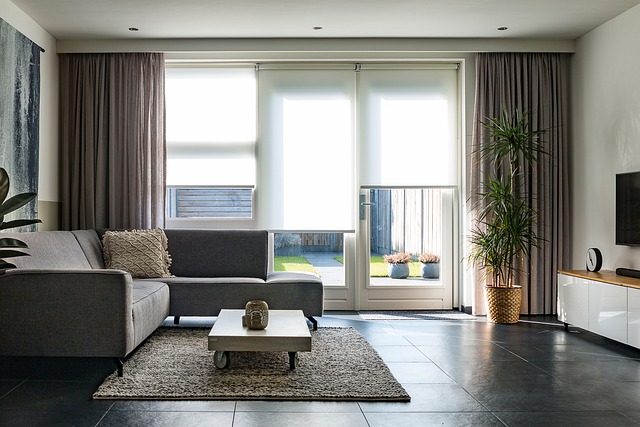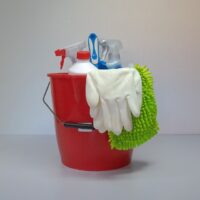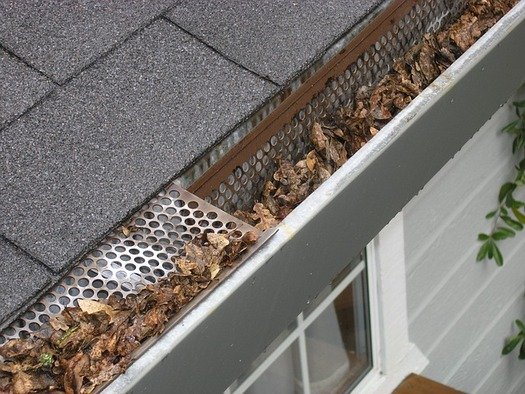When it comes to creating a healthy and comfortable living environment, we often focus on factors like temperature, lighting, and overall cleanliness. However, one crucial aspect that often goes unnoticed is the quality of the air we breathe indoors. The air in our homes can contain pollutants and allergens that have a significant impact on our health and well-being. That’s why regular cleaning plays a vital role in maintaining excellent indoor air quality. In this article, we’ll explore the importance of regular cleaning on your home’s indoor air quality and how it can positively affect the air you breathe in your home.
Table of Contents
The Impact of Indoor Air Quality on Your Health
Indoor air quality directly affects our health, and poor air quality can lead to various respiratory problems, allergies, and other health issues. Here are some key points to consider:
- Studies have shown that indoor air can be more polluted than outdoor air, often containing higher levels of pollutants and allergens.
- Pollutants such as dust mites, pet dander, mould spores, and volatile organic compounds (VOCs) can trigger allergies and respiratory problems.
- Poor indoor air quality has been linked to an increased risk of asthma, bronchitis, and other respiratory conditions.
- Children, the elderly, and individuals with pre-existing respiratory conditions are particularly vulnerable to the effects of poor indoor air quality.
How Regular Cleaning Improves Indoor Air Quality
Regular cleaning routines can significantly improve the quality of the air you breathe in your home. Here’s how:
Eliminating Dust and Allergens
- Dust, pollen, and other allergens accumulate over time and circulate in the air, leading to respiratory problems and allergic reactions.
- Regular dusting, vacuuming, and sweeping can effectively reduce the presence of dust and allergens in your home.
- Pay close attention to areas where dust tends to accumulate, such as carpets, upholstery, and hard-to-reach corners.
- Using a high-efficiency particulate air (HEPA) filter in your vacuum cleaner can capture smaller particles, enhancing the cleaning process.
Preventing Mould and Mildew Growth
- Mould and mildew thrive in damp and humid environments, releasing spores that can trigger allergies and respiratory issues.
- Regular cleaning helps maintain a clean and dry home, reducing the chances of mould and mildew growth.
- Pay special attention to areas prone to moisture, such as bathrooms, kitchens, and basements.
Improving Ventilation and Air Circulation
- Adequate ventilation is crucial for maintaining good indoor air quality.
- Clean and inspect your HVAC system regularly to ensure proper functioning and airflow.
- Change air filters as recommended by the manufacturer to prevent the circulation of dust and other particles.
- Open windows and doors whenever possible to allow fresh air to circulate in your home.
Minimizing Chemical Exposure
- Many cleaning products contain harmful chemicals that can negatively impact indoor air quality.
- Opt for eco-friendly and non-toxic cleaning solutions to minimize chemical exposure.
- Avoid using air fresheners and synthetic fragrances that often contain VOCs.
- Read product labels and choose cleaning products that are certified as low-VOC or fragrance-free.
Maintaining a Clean and Organized Environment
- Cluttered spaces can accumulate dust and make cleaning more challenging.
- Regularly declutter and organize your home to create a cleaner environment.
- Use storage solutions and keep surfaces clear to minimize dust accumulation.
- Encourage family members to maintain cleanliness in their personal spaces.
Additional Tips for Improving Indoor Air Quality
In addition to regular cleaning, there are several other steps you can take to enhance the indoor air quality in your home. Consider the following:
- Keep humidity levels in check to prevent mould and mildew growth.
- Avoid smoking indoors, as it releases harmful chemicals into the air.
- Install carbon monoxide detectors to ensure your home is free from this odourless gas.
- Use indoor plants, such as peace lilies and spider plants, to naturally filter the air.
- Regularly wash bedding, curtains, and other fabrics to remove allergens.
- Place doormats at entry points to prevent dirt and dust from being tracked inside.
- Dust, Dander, and Allergens
- One of the primary contributors to poor indoor air quality is the accumulation of dust, pet dander, and other allergens. Regular cleaning, including dusting surfaces, vacuuming carpets, and washing bedding, can effectively reduce these airborne particles. By doing so, you create a living space that is less prone to allergens, promoting better respiratory health for you and your family.
- Preventing Mold Growth
- Mold is not only unsightly but can also pose serious health risks. Regular cleaning, especially in areas prone to moisture like bathrooms and kitchens, helps prevent mold growth. Scrubbing surfaces, repairing leaks promptly, and ensuring proper ventilation can mitigate the conditions that foster mold, improving the overall air quality in your home.
Conclusion
Taking care of your home’s indoor air quality is an essential aspect of maintaining a healthy and comfortable living space. Regular cleaning, along with other preventive measures, plays a crucial role in reducing the presence of pollutants, allergens, and irritants in the air you breathe. By incorporating these practices into your cleaning routine and being mindful of potential sources of indoor air pollution, you can create an environment that promotes better health and well-being for you and your family. So, don’t underestimate the power of regular cleaning in improving your home’s indoor air quality – your lungs will thank you for it!










